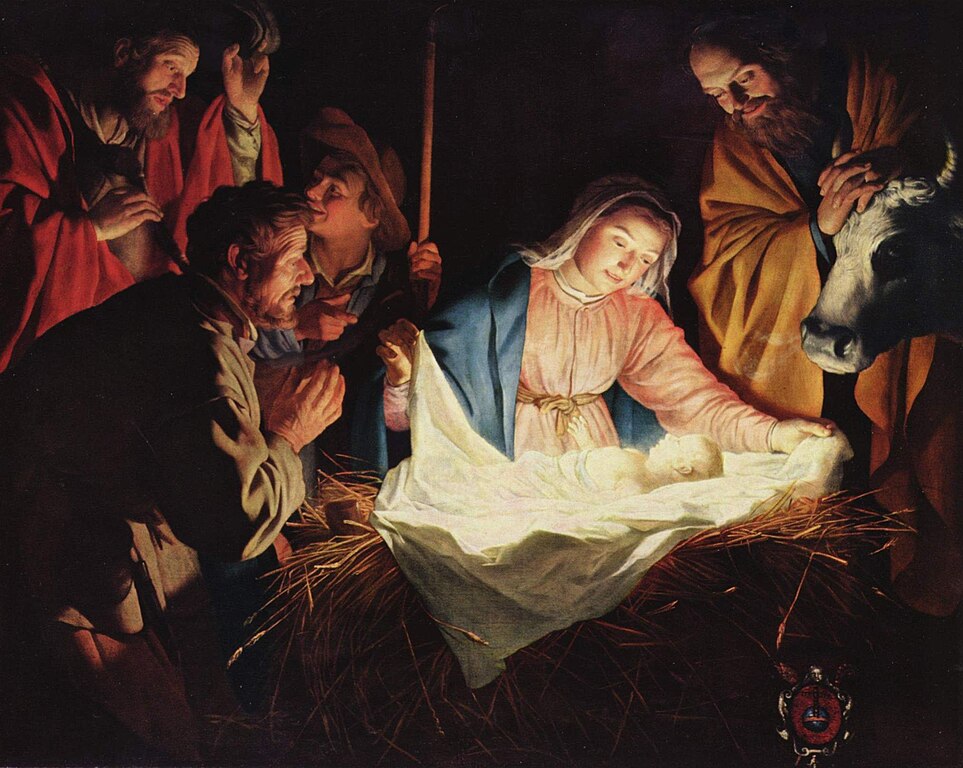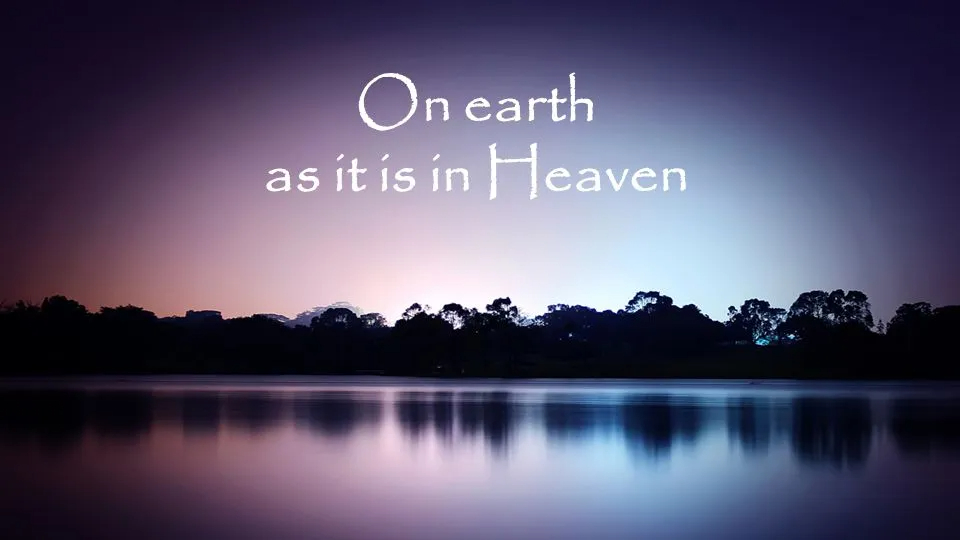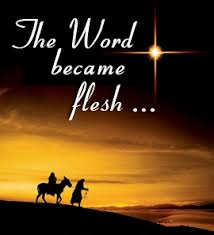There is a meme that has been going around on social media for a little while now, called “How it Started vs. How it’s Going.” The meme in general has two pictures, one labeled, obviously, “How it started” and the other “How it’s Going.” When it started, it was a way, on social media, to show the progress of a relationship. One picture would show the proposal or the first date, and the other would show a picture representative of the relationship at this point. Now it has evolved a bit, and often it will be a humorous meme. One meme I saw showed a famous chef early on in his career, and the “how it’s going” showed him flambeing a dessert with a huge ball of fire. Another showed the incredible Hulk as a mild mannered everyday guy, then after he got mad. You get the idea.
Today’s Gospel reading makes me think of those memes. The first three words of the Gospel of John are the same as the first three words of the book of Genesis: “In the beginning.” How it started was that there was nothing, a swirling void as Genesis portrays it. But through Jesus, God the Word, working with God the Father, everything in the universe came to be. The Gospel tells us how it’s going:
And the Word became flesh
and made his dwelling among us,
and we saw his glory,
the glory as of the Father’s only Son,
full of grace and truth.
The Old Testament unfolds for us the many ways that God has intervened in history to save his people. He placed man and woman in the Garden of Eden, safe from all harm, should they choose to accept it (which, of course, they did not!). He brought eight people through the deluge of the great flood on Noah’s Ark. He promised Abraham his descendants would be as numerous as the stars of the sky. He led his people out of slavery in Egypt, through the desert and into the Promised Land, protecting them and guiding them through the hand of Moses all along the way. His love for his people, his desire that they be one with him, and his efforts to save them from their own folly have been abundant all through human history. But as numerous as his efforts have been, so have humankind’s failures to follow him been numerous as well.
Which brings us to the event we celebrate today. Let’s be clear: this is not some last-ditch effort before he throws up his hands and leaves us to our own devices. This is the saving event, and there is no other. This is the way to salvation that has always been intended and has been promised through the ages, from the very days of the creation of the world, when the Word, as Saint John tells us today, was with God, and with God, created everything in heaven and on earth.
This awesome event is the Incarnation: Jesus, the Word through which all were created, comes to be one of the created ones. This is the first and best of the mysteries of our faith: without the Incarnation, there could be no cross, no resurrection, no ascension, no salvation. None of the savings events of the Old Testament could be as effective and powerful as the Incarnation and the Paschal Mystery: in fact, those previous acts of salvation led up to the salvation we have in Christ Jesus, and paved the way for that saving act. In today’s feast, the great light of Christ has taken hold of the darkness this world brings to us and shatters it forever, shining great light into every corner of our dark world, and our sometimes very dark lives as well.
This gift of the Incarnation is the best Christmas present we will receive – it is the best gift of any kind that we will ever receive, because in the Incarnation we have what’s necessary for us to be saved. This is so important a mystery and so great a gift, that at the words of the Incarnation in the Creed today, we are instructed to genuflect, not just bow. So we will genuflect when we say the words, “by the power of the Holy Spirit, He was born of the Virgin Mary, and became man.” And we genuflect because we remember with great gratitude that if the Word didn’t become flesh, if he wasn’t born of the Virgin Mary, if he didn’t become one like us, if he didn’t pay the price for our sins, we would never have salvation, or hope of life with God. Praise God for this great gift today!
And so as we continue our prayer today, we offer God the darkness in our lives: our sins, our frustrations, our disappointments, our pain, our grief – and we hold up all of this to the great Light that is God’s Word, the one who became one like us, who pitched his tent among us, and who dwells with us now. We pray that the Light of the world would banish our darkness, and help us to see the way to God from wherever it is that we find ourselves on the spiritual path today. We celebrate that today and every day, Jesus Christ is the Light that shines in the darkness, and the darkness has not overcome it. That’s how it’s going for all who believe in Jesus and long for his salvation.
Merry Christmas to all of you, and may God bless you in the year ahead.







You must be logged in to post a comment.